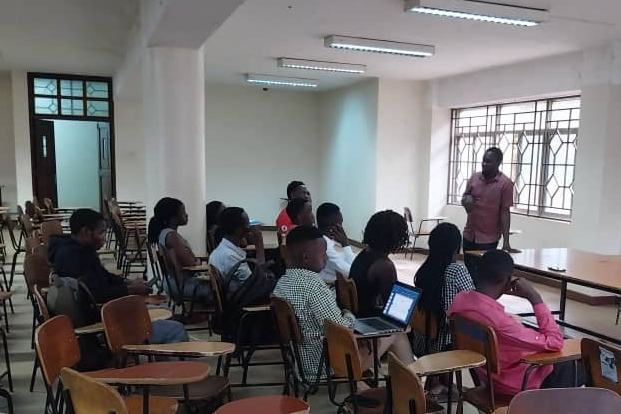About
University students in low- and middle income countries continue to face growing rates of depression, a common mental health problem. Adding to this burden is the mental health treatment gap, necessitating the need to identify novel therapeutic strategies that can easily be implemented, and at a large scale.
For a quick overview of the NutriMind project, check out this video:
https://go.screenpal.com/watch/cZfUqrVMwhO
Background

Photo: Prudence Friberg
The burden of depression is high in sub-Saharan countries, largely aggravated by malnutrition, poverty and poor public health governance, and lately the covid-19 pandemic. These factors increase psychological distress, in particular among young people in challenging periods of life, such as students who are about to choose their career and establish family.
Successfully managing depression in this region is likely to depend on low-cost therapy that can easily be administered to large target populations, yet still be at the scientific forefront, evidence-based, and culturally acceptable. This can possibly be obtained with an intervention combining healthy diet and cognitive behavioural therapy based on mindfulness principles.
Objective
The purpose of this project is to perform a randomized controlled trial to test if a healthy diet combined with mindfulness-based cognitive therapy can reduce depressive symptoms among university students in Uganda, a low-income country.
Trial features
We will perform a randomized controlled trial where will examine if a combination of a healthy diet ("Mediterranen-diet") and psychotherapy ("Mindfulness-based cognitive therapy") can reduce the occurrence of depressive symptoms among University students in Uganda. We will include two study groups (control, n=125) and intervention, n=125). The trial will last for a total of two years. Those who score 16-25 points on the Center for Epidemiological Studies – Depression score (CES-D) scale, a self-reported assessment of depressive symptoms, are eligible. The primary endpoint is a reduction in this score. In addition we will perform a health-economic evaluation of the project. The project is registered in ClinicalTrials.gov ID NCT05848973.

Photo: Paul Akampurira
Training in mindfulness-based cognitive therapy.
Photo: Paul Akampurira
Digital tool as part of the psychotherapy intervention
To increase the adherence to the psychotherapy intervention with mindfulness-based cognitive therapy, the study participants will get access to StressProffen©™, an app-based stress management program based on well-known strategies and principles from cognitive behavioral therapy, in combination with a number of other recognized stress management techniques, such as mindfulness, relaxation exercises and visualization. Studies have shown that the StressProffen program can help reduce stress and symptoms of anxiety and depression in everyday life, as well as better quality of life and the ability to self-regulate thoughts, feelings and behavior.
Read more about StressProffen here: https://www.digitalhealth.no/english/projects/stressproffen/index.html
Financing
- Henning och Johan Throne Holst’s Foundation
- Throne Holst’s Foundation
- University of Bergen
Collaboration
- Makerere University, Kampala, Uganda
- Kyambogo University, Kampala, Uganda
- Hope Partners Africa, Uganda
- Norwegian Medical Students’ Association, Norway
- University of Bergen, Bergen, Norway
- Oslo University Hospital, Oslo, Norway

